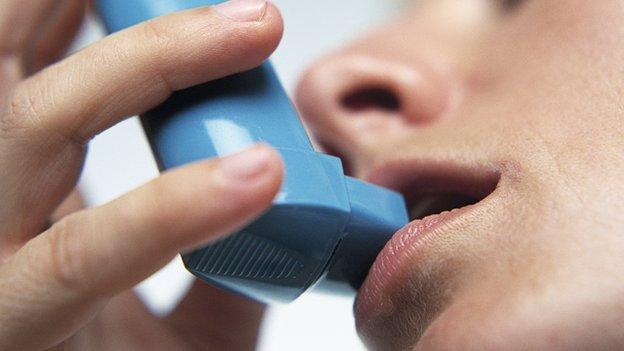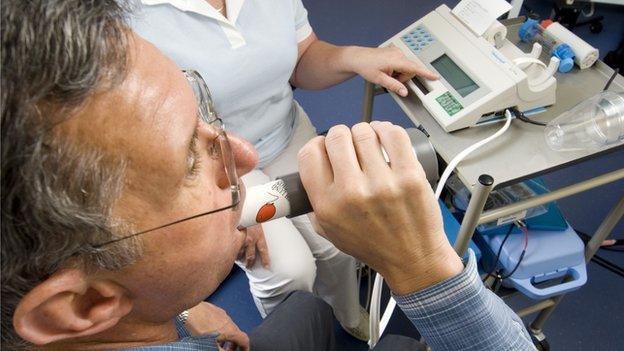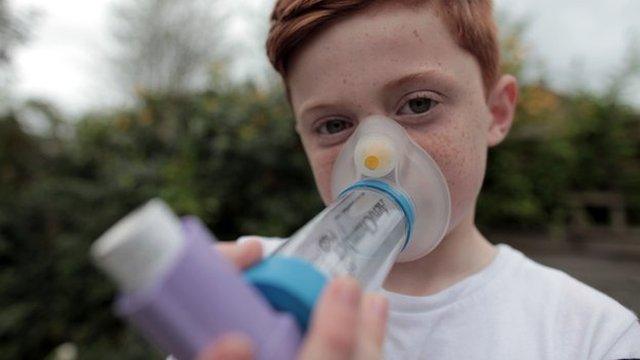Asthma diagnosis 'may be wrong' in one million UK adults
- Published

More than a million adults in the UK may be wrongly diagnosed as asthmatic and be receiving unnecessary medication as a result, warns an NHS watchdog.
NICE says a third of adults diagnosed with this common lung condition have no actual clinical signs of asthma.
Some may have had asthma in the past, but many have probably been given an incorrect diagnosis, says NICE, which has drafted new advice for doctors.
But people should not stop medication on their own, warn experts.
Anyone who is concerned should talk to their doctor, they stress.
And asthma charities say under-diagnosis and under-treatment is still a big problem.
Three people die every day because of asthma. Most of these deaths could have been avoided through better control of the disease, says Asthma UK.

Asthma
5.4 million people in the UK are currently receiving treatment for asthma: 1.1 million children (one in 11) and 4.3 million adults (one in 12)
Diagnosis can be difficult as there is no absolute test
Doctors often rely on their own expertise and the patient's symptoms to reach a diagnosis
NICE says doctors should use clinical tests to back up their diagnoses
Source: Asthma UK and NICE

Doctors already follow guidelines to help them diagnose and treat asthma patients. But the latest advice from NICE takes the most recent scientific evidence into account.

The first diagnostic test doctors should use is spirometry, recommend the draft guidelines
New NICE NICE guidelines, external for England, which are now out for consultation before final approval, say doctors should use more clinical tests to back up their judgement and avoid the danger of wrongly labelling someone as having asthma.
The best test to start with is spirometry - a machine which measures how much and how fast a person breathes out. Further breath tests may also be needed, says the guidance.
Prof Mark Baker, director of clinical practice at NICE, said: "Accurate diagnosis of asthma has been a significant problem which means that people may be wrongly diagnosed or cases might be missed in others.
"Our aim with this guideline is to give clarity and set out the most clinical and cost-effective ways to diagnose and monitor asthma based on the best available evidence."
Over-treatment is a concern because some of the drugs used to manage asthma can have significant side-effects.
Asthma UK welcomes the new guidelines - but warns there is also evidence asthma is under-diagnosed too - and that eight out of 10 asthma sufferers are still not getting the correct basic care.
Kay Boycott, Chief Executive at Asthma UK says: "Asthma has many complex causes which is one of the reasons why it is sometimes difficult to get a definitive diagnosis.
"It is also a highly variable condition that can change throughout someone's life or even week by week, meaning treatment can change over time.
"For anyone with an asthma diagnosis, it is vital they have the right medication and a plan to better manage their condition and any asthma attacks."
- Published20 December 2014

- Published6 May 2014
